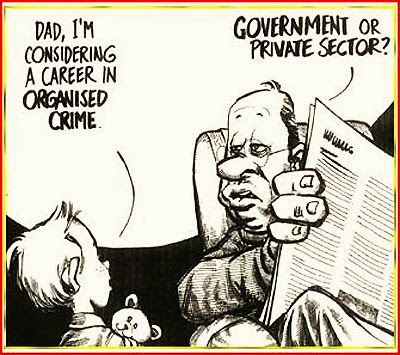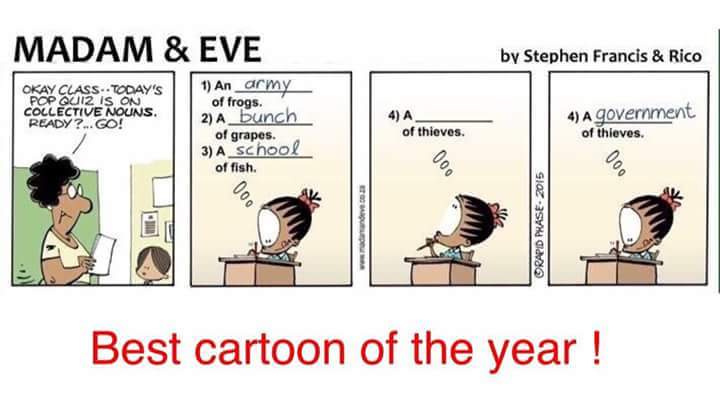We are now paying for the extravagances during the Mahathir years of 1981-2003.
Petronas’s profits paid for most of the mega projects like KLCC and Putrajaya and helped in bailing out failed privatisation projects. Nobody dared to question his decisions then.
With the oil reserves drying up, the government of the day had no alternative but to bite the bullet. The urgency of it all could suggest an even more serious situation than admitted.
Besides the high costs of developing Putrajaya, especially to reflect its grandeur and aesthetics, which include man-made lakes and beautiful bridges and landscaping, we now have to maintain it at higher than normal costs. Imagine having to maintain a Rolls Royce instead of a Kancil.
Instead of solving the traffic jams in KL, we have created traffic jams between KL and Putrajaya, as most of the civil servants and public commute. Except for some ministries, the public is beginning to feel the pinch of having to travel to sort out their dealings with the government, more so now, with the increase in fuel prices. They are already discussing on the viability, or is it necessity now, to have a LRT service to Putrajaya.
To refute any wild allegations and rumours, Petronas should have someone in charge of providing information each time someone somewhere wrote something untrue. If, as the Chairman insisted, Petronas has been transparent all along, why did people keep accusing Petronas of not revealing their accounts?
For starters, I am sure the public would like to know the revenue, profit and other relevant figures – particularly money spent by the government on mega projects, since 1974. If there is no one responsible to provide these figures, then it is about time, the company set up a special PR body to handle it. The public is going crazy based on perceptions that Petronas has been secretive because the truth might be detrimental to national security and public disorder or something to that effect, much like the NSE contract under OSA.
I find the following letter in Malaysiakini, sensible among the many complaints and wild allegations:
Mismanagement - the gov't stands accused
Halibullah Abdul Majid Jun 6, 08 4:47pm
The prevalence of thinking that petrol prices in Malaysia should be kept low because we are a net oil exporter is incorrect and to a certain extent it is being irresponsibly manipulated by those with vested interests.
Applying this same thinking, cooking oil should also be very cheap in Malaysia as we are the world's largest exporter of palm oil. Stretching this argument further, diamonds and gold should be very cheap in South Africa and Zimbabwe since that's where the bulk of this stuff is produced in the world.
Now back to the argument as to why fuel prices in Malaysia cannot be kept depressed:
The government is the ultimate owner of the oil and gas deposits in Malaysia; this applies to other natural resources like sand, tin, iron ore and timber, etc.
However, for the oil and gas to be of any value, it has to be extracted from wherever it is, which in Malaysia is entirely deep in the ocean. The process of exploration and production - especially in the ocean - is technologically very complex and expensive.
Before Petronas was set up in 1974, this was done mainly by Shell and Exxon via a licensing agreement with the government. They made investments, extracted the oil and sold it at market prices. In return, they paid the government normal corporate tax and a royalty on the oil produced.
In 1974, after discoveries of huge deposits of oil and gas in Malaysia, the government very rightly realised that they need to get more value for these resources. Thus Petronas was set up and given ownership of all the oil and gas deposits in Malaysia on behalf of the government.
Petronas then gave out new licences - mainly to Shell and Exxon - on very stringent terms. Shell and Exxon made investments and produced the oil and gas. Under the agreement with Petronas, the bulk of the oil and gas produced by Shell and Exxon was returned to Petronas.
Petronas then sells the oil and gas at international market prices and the revenue is accounted for in Petronas' books.
After many years of its existence, Petronas today also explores and produces oil and gas on its own like Shell and Exxon. Petronas makes its own investments for its operations and keeps the profits.
As for the consumers, they have to buy petrol and diesel at international market prices, just like gold. If the government insists that the sellers charge a price that is lower than the market, then the government needs to subsidise and we can see how disastrous this can get.
Many governments in the world, especially major oil-producing countries with large populations like Indonesia, Nigeria, etc, have destroyed their economies by depressing pump prices. Indonesia today is a net importer and did not get any value for their oil and gas during all those years they were an exporter as their people wasted this resource.
In fact, there are many books on the subject of the 'Curse of Oil' as politicians mismanage this resource through corruption and populist policies designed to win votes.As Malaysians, we have the right to ask the government to explain and be accountable for all the profits Petronas is generating, which is in the region of RM50-70 billion currently. Of course, a large part of this is paid to the government which is reflected in the annual budget.
The major concern is also that with the dwindling oil and gas reserves in Malaysia, the government will face a major shortfall in revenue in 5-10 years’ time. We can then expect that income taxes will increase as it is not likely that the government has any significant source of revenue to compensate the reduction in revenues contributed by Petronas.
Ultimately, we all have the right to question the government on its management of our country's finances during all the good old yesteryears and going into the future. Obviously, a big chunk of the oil and gas revenues has been frittered away through corruption and wasteful projects.
For instance, all those privatised highways (which in total did not cost more than RM20 billion) is one good example of where Petronas revenues should have been spent and saving us consumers the kind of burdens that we are now faced with. Instead, Dr Mahathir Mohamad chose to build monuments like KLCC and Putrajaya.
Also, the government has a totally flawed approach in managing wages in the private sector. Whilst civil servants are granted hefty increases, the government has the gall to deny the right for a decent level of minimum wage in the private sector.
In many well-managed countries, wages will rise in tandem with inflation including increases in fuel prices. The government's approach of keeping Malaysia as a ‘low-cost center’ has benefitted foreigners rather than locals.
This is causing major social upheaval in Malaysia which is amply reflected in the rejection of the BN in the last election.
So ultimately, in my view, the government stands accused, not for increasing fuel prices but gross economic mismanagement. I am, however, not confident that the Pakatan Rakyat policies in this respect are right either.
We are entering a very challenging period and all of us Malaysians must demand that our politicians behave ethically and responsibly in charting our future, failing which the consequences for Malaysia will be seriously negative if not disastrous.





No comments:
Post a Comment